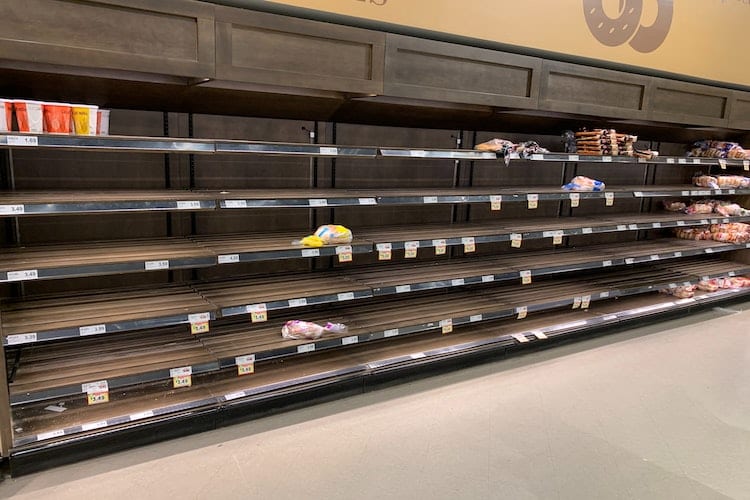How Mutual Aid Groups Are Fighting Food Insecurity In Major Cities

As COVID-19 has threatened people’s livelihoods and the supply chains of many goods, food insecurity remains a major problem in America. Millions of households struggle to find enough food every year, and the problem has only gotten worse under these conditions. Government aid to struggling Americans has been arguably lackluster across the board, although the CARES Act did supply $25 billion to food access.
Still, many Americans are going hungry. In some areas, these difficult times have brought people together and strengthened communities. The pandemic is an issue all of us are fighting together, so many Americans are looking to lighten the burden for their neighbors and friends.
Prominently, community fridges have popped up in New York and the Bay Area, stocked with free food for anyone in the community in need. In times of uncertainty, people are stepping up to help one another across the country.
What is Food Insecurity?
While food insecurity is related to hunger and starvation, the term itself is very technical. It refers to situations in which people are unable to maintain healthy eating habits through to lack of money or other resources, according to the Office of Disease Prevention and Health Promotion.
Food production and availability are important factors in food security, as is a family’s wealth. Considering the impact of COVID-19 on people’s wallets and companies’ food production, it’s no wonder that this issue has entered the mainstream as more and more people struggle to access food.
Fighting Food Insecurity
In New York City, roughly 2 million residents don’t have enough food. That didn’t sit right with Brooklynite Thadeus Umpster, who set up a community fridge outside his Bed-Stuy apartment, according to Curbed. Umpster works with a food share in his neighborhood but took that a step further in February when he first stocked the free fridge.
“We’re trying to do something good, and trying to help people out who may need it and might not want to go to a grocery store, too,” Umpster told Curbed. “When people are taking the time to get to know the people in their neighborhoods and communities, we’re stronger and more secure.”
Community fridges spread by word of mouth and social media, not only allowing more people to find food security but prompting others to set up similar aid plans.
Grocery Company Cheetah Launches #FoodGiving Campaign
Since Umpster set up the first NYC community fridge, fridges have popped up in every borough of the city. And the idea wasn’t contained to the east coast. In major cities like Philadelphia, Nashville, Chicago, and Las Vegas, community activists established fridges to help feed themselves and their neighbors.
In California, a wholesale food supplier called Cheetah launched a #FoodGiving movement, similarly designed to help feed communities through public fridges. Cheetah, founded in 2015 as a supplier for restaurants, expanded its service to families during the pandemic but the company felt there was more to do.
“After donating tons of food to charitable organizations, we realized we can make an even greater impact by coming together and directly reaching out to those in need,” according to the company site.
Of the 7.5 million people living in the Bay Area, nearly 900,000 are food insecure. To help combat this, Cheetah established and stocks two community fridges – one in San Jose and one in Oakland – according to Fast Company. Cheetah hopes to expand the project and is asking for people to donate food and space as well as commissioning artists to paint the fridges.
“We believe that we actually have the ability to operate [community fridges] at a much bigger scale than individuals could,” said Cheetah CEO Na’ama Moran. “We’re willing to finance the fridges, we would love to commission more fridges to be decorated by artists, we just need more locations.”
The Bottom Line
Despite the U.S. being one of the wealthiest nations in world history, millions of Americans are food insecure. While politicians at the state and federal level have taken strides to protect food-insecure Americans, many of the most impactful measures are taken within communities.
If you can, consider donating to or working with a mutual aid group, charity, or company working toward food security in your community. During times like these, we need to support one another now more than ever.









